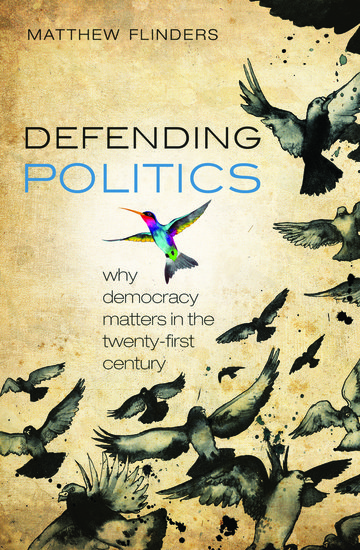By Matthew Flinders
Politics appears to have become a ‘dirty’ word not for the few but for the many. Across the developed world a great mass of ‘disaffected democrats’ seem increasingly disinterested in politics and distrustful of politicians. My sense is that the public long for a balanced, informed, and generally honest account of both the successes and failures of various political parties and individuals but what they tend to get from the media, the blogosphere, most commentators, and (most critically) political parties is a great tsunami of negativity or what I call ‘the bad faith model of politics’. Put slightly differently: public skepticism is a healthy element of any democracy, but surely we have slipped into an atmosphere that is awash with corrosive cynicism.
The American presidential race provides arguably the most far-reaching and destructive case study of the ‘bad faith model of politics’. The Republican Party plans, according to the New York Times (May 17 2012), to run a series of anti-Obama hard-line attack ads that will plum new depths in terms of what is generally known as ‘attack politics’. The Democrats, to be fair, will undoubtedly seek to frame Mitt Romney in ways that are hardly designed to flatter.
Politics fuelled by aggression has created a form of political competition akin to modern warfare (strategy, communication, troops, etc.) in which the role of political actors is to ‘attack’ anyone who disagrees with them. As such the language, discourse, and tactics of politics is generally focused on negative campaigning, personal slurs, and a view of politics that defines any willingness to engage in serious debate, offer to negotiate, or change your mind as evidence of weakness. It is bitter, short-tempered, and its ambition is to sneer and jibe mercilessly; so obsessed with winning at all costs it cannot see that a political strategy based on the use of aggression to win office can only fail in the long term.
More importantly, away from the bear pit of the legislature or television studio, political life is focused on the maintenance of a system in which ideas, conflicts, and interests are openly articulated and peacefully resolved. It is rarely glamorous or easy, it is often dull and messy, and it is generally not a profession full of liars, cheats, and scoundrels (every profession has its bad apples and politics is no different). It is, however, an increasingly hard and brutal business. It is not for the faint-hearted and although this has always been the case, there has been a step-change in recent years in relation to the intensity of the pressures, the brutality of the criticisms, the personalized nature of the attacks, and the arbitrary targeting by the media and political opponents. The storm that to some extent inevitably encircles democratic politics has for a range of reasons become more intense and toxic. My concern is that we are hollowing out the incentives that need to exist to attract the best people from all walks of life to get involved and stand for office. A process of demonization has occurred that can only end in a situation where ‘normal’ people feel inclined to walk away, leaving only the manically ambitious, socially privileged, or simply weird in their stead. In a sense we risk creating a self-fulfilling prophecy that politicians are ‘all the same’ exactly because of the climate we have created.
This narrowing of the talent pool from which politicians are increasingly drawn is directly attributable to the sheer force of the storm that is constantly breaking upon the shores of politics. Politicians must operate with an almost perpetual swirl of scandal and intrigue breaking around their heads. Many good people currently brave the storm in the hope of making a positive difference to their community, city, or country. But someone with a life, a family, interests beyond politics, and the ability to do other things, can feel deeply inclined to stick to them and leave the political storm to itself. We need to calm the storm. Attack politics in general and attack ads in particular benefit only the sellers of expensive advertising space and certainly not the public.
Matthew Flinders is Professor of Politics at the University of Sheffield. His latest book, Defending Politics: Why Democracy Matters in the 21st Century, has just been published by Oxford University Press. His book Delegated Governance and the British State was awarded the W.J.M. Mackenzie Prize in 2009 for the best book in political science. He is also the author of Democratic Drift and co-editor of The Oxford Handbook of British Politics. Read his previous blog post “It’s just a joke!” on political satire.
Subscribe to the OUPblog via email or RSS.
Subscribe to only politics and law articles on the OUPblog via email or RSS.
View more about this book on the ![]()
![]()


[…] British Politics. Read his previous blog posts: “It’s just a joke!” on political satire, “Attack ads and American presidential politics,” and “Democracy as […]
[…] ‘Attack, attack, attack’ may have become the motto of American politics as seen in the political adverts and the toxic gutter-press sniping of shock-jocks, but we should not confuse democracy as it has […]